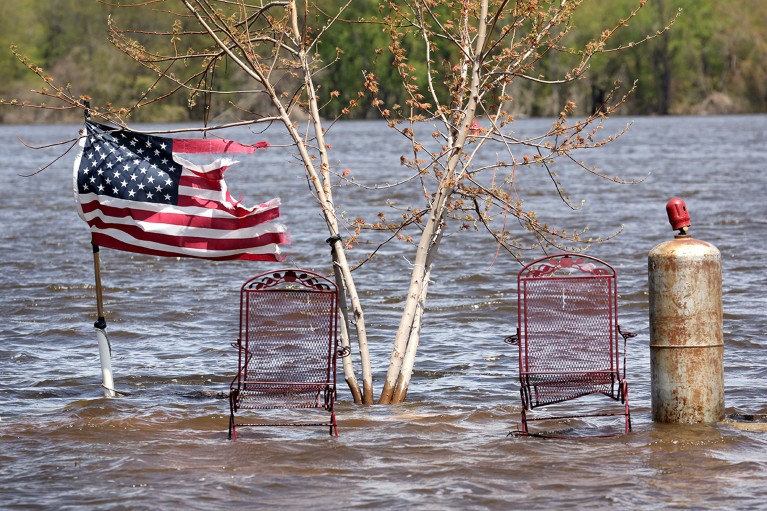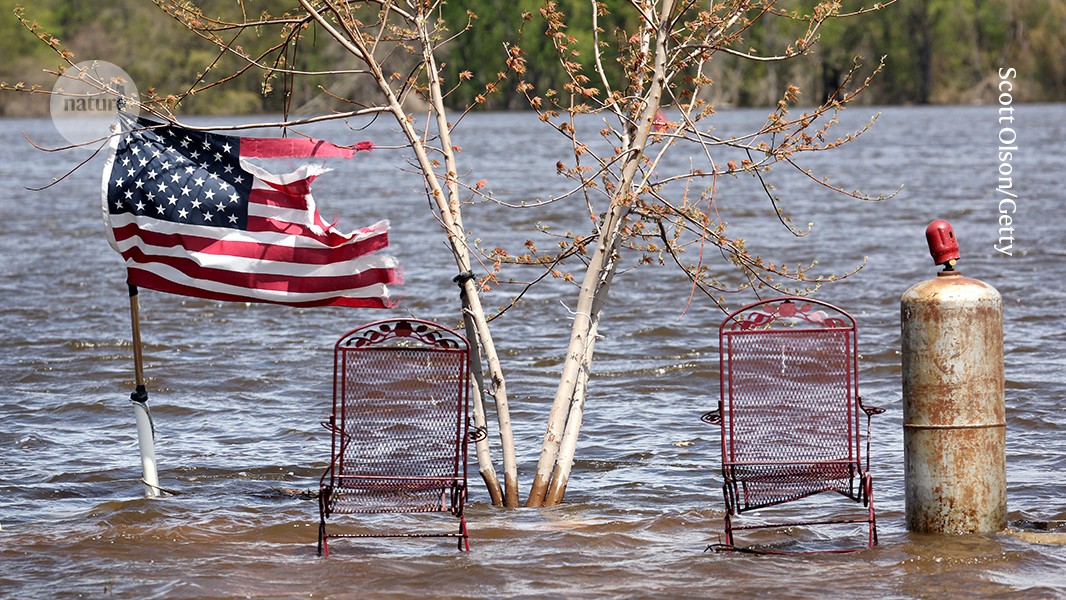
Climate change is driving more frequent bouts of extreme weather that lead to floods and other damage.Credit: Scott Olson/Getty
Every four years, the US government is supposed to release a report on how climate change is affecting the nation, to guide communities and companies on how to address and adapt to a warming planet. But the sixth edition of the National Climate Assessment — already in the works for months — was gutted earlier this week, when US President Donald Trump’s administration dismissed hundreds of scientists helping with it.
‘Totally broken’: how Trump 2.0 has paralysed work at US science agencies
Some researchers aren’t giving up, however. They are wondering whether they could publish it anyway, through independent channels. One of their inspirations is the National Nature Assessment, a report that Trump cancelled on his first day back in office. Last month, researchers involved with that report announced a campaign to publish it outside the governmental framework, using private funding. The report is meant to detail the importance of nature — ecosystems, biodiversity and more — on the US economy and on US health.
Both reports address “the condition of the planet writ large”, says Gillian Bowser, an ecologist at Colorado State University in Fort Collins and a lead author of the nature assessment. Efforts to revive them reflect the ways in which US researchers are trying to cope with Trump’s assault on federal science.
“I volunteered for this effort, and I’m ready to continue it,” says Costa Samaras, a systems engineer at Carnegie Mellon University in Pittsburgh, Pennsylvania, and lead author of a chapter of the climate assessment. “This is important work for the country,” adds Samaras, who worked on US energy policy under Trump’s predecessor, Joe Biden.
Up-to-date knowledge
Both projects were coordinated by the US Global Change Research Program (USGCRP), a network of 15 federal agencies that deal with environmental issues across the US government. The reports were meant to be comprehensive syntheses of the most up-to-date scientific knowledge in the fields of climate science and ecology.
Will US science survive Trump 2.0?
The first National Climate Assessment was published in 2000; since then, this report, mandated by the US Congress, has come out fairly regularly. It is “the de facto understanding of what climate change means for the country”, says Nícola Ulibarrí, an environmental policy specialist at the University of California, Irvine, who contributed to the fifth edition and was slated to contribute to the sixth.
Trump has called climate change a “hoax”, but during his first term as president, he approved the 2018 release of the fourth climate assessment. His team also began the process of setting up the fifth assessment, although the president’s controversial pick to lead the USGCRP — a climate-change denier — was later replaced. By contrast, Trump’s current administration moved swiftly to gut the sixth report, dubbed the NCA6.
In early April, the president’s team terminated contracts with the company that provided internal staff members to coordinate the report’s production. This week, administration officials dismissed nearly 400 university and other external scientists who were working on it. Nature asked the White House the reason for the terminations, and received the same line that appeared in the scientists’ dismissal e-mail: “At this time, the scope of the NCA6 is currently being reevaluated in accordance with the Global Change Research Act of 1990.”




